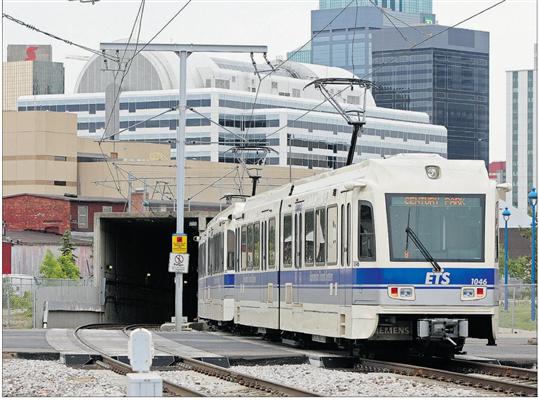EDMONTON – The city needs to look at introducing a transit smart card to help offset concerns about rising expenses and declining service, a report says.

Edmonton Transit fares are set to keep going up over the next four years, but they cover a shrinking proportion of the system’s costs, says a report discussed Tuesday by council’s transportation and infrastructure committee.
At the same time, service isn’t keeping up with passenger expectations, particularly on evenings, weekends and on over-crowded inner-city vehicles, the report says.
“This means that the personal perceptions of value are eroding … for many customers,” it says.

Get breaking National news
“Future fare hikes in the absence of noticeable service level improvements … will increase dissatisfaction, mitigate ridership growth and invite criticism and cynicism of transit service.”
The cash fare rose to $2.85 last February and is set to hit $3 in 2014, while an adult monthly pass is set to rise to $95.70 from the current $84.65 over the same period.
Adults make up half the system’s roughly 80 million annual riders and pay 70 per cent of the revenue, while seniors – who pay $13 for a monthly pass – account for eight per cent of the riders and cover 1.6 per cent of the revenue.
The committee agreed to look at putting money into the 2012 budget for a smart card, which would let transit officials charge fares based on distance travelled, time of day or type of service rather than age or school status.
Estimates earlier this year pegged the cost of smart card equipment at $26 million over four years.
“Implementing a financially sustainable and equitable fare structure with more flexible payment options will require an investment in new fare collection technology,” the report says.
“Advanced fare collection technology will also reduce fare evasion and provide better information for making marketing and service design decisions.”







Comments